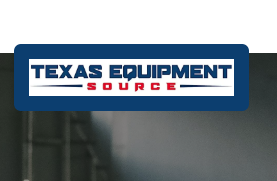In today’s digital age, every business, including law firms, needs a robust online presence to stand out in a competitive market. Search engine optimization (SEO) has become an essential part of that process, as it helps increase your website’s visibility on search engines like Google. For attorneys, choosing the right SEO advisor is crucial to ensuring that their website reaches the right clients and ranks well in search results.
Law firm SEO experts and agencies claiming to be the best, how do you know who is the right fit for your law firm? In this guide, we will walk you through the key considerations you should make when choosing an SEO advisor for your legal practice.
1. Understand the Basics of SEO
Before diving into the search for an SEO advisor, it’s important to understand the basics of SEO. SEO involves optimizing your website’s content, structure, and technical elements to make it easier for search engines to crawl, index, and rank your site. An SEO advisor works to improve your site’s ranking for specific keywords related to your legal practice.
Key elements of SEO include:
-
Keyword Research: Finding the right terms potential clients are searching for.
-
On-page SEO: Optimizing individual web pages for target keywords.
-
Off-page SEO: Building high-quality backlinks to improve your site’s authority.
-
Technical SEO: Improving the backend structure of your website for better crawling and indexing.
-
Local SEO: Optimizing your presence for local searches, which is especially important for law firms targeting clients in specific geographic areas.
Having a general understanding of these areas will help you communicate more effectively with SEO advisors and assess their knowledge and expertise.
2. Look for Legal Industry Experience
Not all SEO advisors are created equal. While an SEO expert might be skilled at optimizing general websites, legal SEO requires a specialized understanding of the legal market. Law firms face unique challenges when it comes to SEO, from adhering to ethical advertising rules to standing out in a highly competitive market.
When choosing an SEO advisor, look for someone who has experience working with law firms specifically. They should understand the nuances of legal marketing, such as:
-
Complying with legal advertising guidelines (including ABA rules).
-
Targeting specific legal practice areas (e.g., personal injury, criminal defense, family law).
-
Optimizing local searches, especially if your firm operates in specific cities or regions.
-
Understanding the value of reviews, ratings, and testimonials for law firms.
A seasoned legal SEO advisor can tailor their strategies to meet the unique needs of your firm, improving your visibility in your area of expertise.
3. Check Their Track Record and Results
The best way to gauge an SEO advisor’s effectiveness is to ask for results from previous clients. A reputable SEO advisor will have a proven track record of improving search rankings and driving traffic to law firm websites.
Ask potential candidates for case studies or examples of law firms they’ve worked with. They should be able to show you measurable results, such as:
-
Increased organic traffic.
-
Improved keyword rankings.
-
Higher conversion rates (from visitors to clients).
A great SEO advisor will be transparent about the strategies they used and the outcomes of their efforts. They should also be able to set realistic expectations; SEO is a long-term strategy, and it can take several months to see significant improvements.
4. Evaluate Their Approach to Transparency and Communication
Effective communication is key to a successful partnership with your SEO advisor. You should feel comfortable discussing your goals, concerns, and expectations with them. A good SEO advisor will be transparent about their approach, strategies, and tactics.
Law firm SEO experts who promise quick results or claim they can guarantee a #1 ranking on Google—this is often a red flag. SEO is a dynamic and competitive field, and there are no guarantees. The best advisors will focus on long-term growth and sustainable improvements.
Additionally, ensure the advisor provides clear reporting and progress updates. You should have access to regular reports that show how your website is performing, which keywords are driving traffic, and any adjustments that need to be made. Communication should be open and frequent, ensuring you’re always informed about the progress of your SEO campaign.
5. Assess Their Knowledge of Local SEO
For law firms, local SEO is particularly important. Most clients searching for an attorney will include a location in their search, such as “divorce lawyer in [city name].” If your firm doesn’t show up in local search results, you could miss out on valuable leads.
When hiring an SEO advisor, ensure they have a deep understanding of local SEO techniques, including:
-
Google My Business Optimization: This is crucial for appearing in local map results.
-
Localized Keyword Research: Targeting location-specific keywords to rank in your geographic area.
-
Citations and Local Directories: Ensuring your firm is listed consistently across relevant local business directories.
-
Review Management: Encouraging and managing online reviews, especially on Google, Yelp, and other legal directories.
Local SEO can make or break a law firm’s online success, so it’s vital that your SEO advisor is well-versed in these strategies.
6. Understand the Costs and ROI
SEO is an investment, and it’s essential to understand the costs involved. Prices can vary widely depending on the scope of services and the experience of the SEO advisor. Be wary of low-cost providers who promise fast results; SEO is an ongoing process that requires consistent effort.
Before committing, clarify the pricing structure and what you can expect in return. A good SEO advisor will be able to explain how they plan to improve your online presence and provide you with a clear ROI (return on investment). You should have a clear understanding of how success will be measured, whether it’s through improved website traffic, better lead generation, or increased client conversions.
7. Look for Ethical and White-Hat Practices
SEO is an ever-evolving field, and while there are many tactics to improve rankings, not all of them are ethical. “Black-hat” SEO techniques, such as keyword stuffing or buying backlinks, may give short-term results but can lead to penalties or even a site ban from search engines.
Make sure the SEO advisor you choose follows “white-hat” practices, which involve ethical and sustainable SEO tactics. White-hat SEO builds long-term, organic growth and is in line with search engine guidelines. Your SEO advisor should focus on creating high-quality content, acquiring natural backlinks, and improving the user experience on your site.
8. Consider the Long-Term Partnership
SEO isn’t a one-time project—it’s an ongoing effort that requires continuous attention and optimization. Look for an SEO advisor who is interested in building a long-term partnership rather than just completing a short-term task.
An experienced SEO advisor will regularly update you on new strategies, changes to search engine algorithms, and evolving best practices. They should be proactive in identifying areas for improvement and making adjustments to keep your website competitive.
Conclusion
Choosing the right SEO advisor for your law firm can significantly impact your online visibility and client acquisition. By considering the advisor’s experience in the legal industry, their track record, communication style, and approach to local SEO, you can make a well-informed decision. Remember, SEO is a long-term commitment, and the right advisor will help guide your firm to sustained online success. With the right expert by your side, your law firm can thrive in the competitive digital landscape.







0 Comments